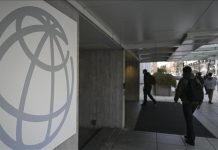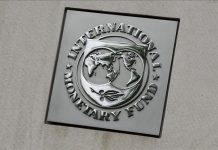AfricaPress-Tanzania: ON June 25, this year, the Organisation for Economic Cooperation and Development (OECD) Global Forum on Transparency and Exchange of Information for Tax Purposes released a report on tax transparency in Africa.
Entitled ‘Tax Transparency in Africa 2020: Africa Initiative Progress Report 2019’, the report provides comparable statistics on tax transparency and the exchange of information between countries to help African countries better battle with tax evasion, illicit financial flows and further efforts to support domestic revenue mobilisation.
Information given is central to the African Union (UN) Agenda 2063 and the Sustainable Development Goals (SDGs) as well as to individual member states.
Tanzania is a member to the Global Forum since 2015 and its schedule of Exchange of Information on Request (EOIR) review is 2020 (Quarter 1).
Since Africa loses about $40-80bn every year in tax evasion, it is important to battle effectively with tax evasion, illicit financial flows and further efforts to support domestic revenue mobilisation for social development.
The World Bank (WB) recently classified Tanzania as a lower middle-income economy, with a gross domestic product (GDP) estimated to be between $1,006 and $3,955. This is five years ahead of the National Development Vision, 2025.
The WB’s classification has brought great joy to President Magufuli and his government, economists and Tanzanians in general, thanks to reforms that have taken place and are still taking place in various sectors of the economy.
Now Tanzanians feel a glow of pride in the great strides we have made to reach the stage we are in at the moment. This is due to the country’s capability to manage its own economy and reduce donor dependency.
For sure, in this there is no turning back lest we retrogress. This is due to the fact that the fifth phase government has put in place workable arrangements to crack down on tax evasion and strengthen domestic revenue mobilisation.
Added to this are reforms made in the mining, energy, natural resources and tourism sectors.
Above all, the government has sealed to a great extent the loopholes of tax evasion and illicit financial flows that helped unscrupulous traders to deplete national resources.
All this has been made possible through public awareness and enacting laws which provide for penalties that deter to a considerable extent tax evasion and illicit flows.
As the Tax Transparency in Africa 2020 clearly puts it, significant progress at continental level has been made on the two pillars of the Africa Initiative, an African-focused programme: 1) raising political awareness and commitment in Africa and 2) developing capacities in African countries in tax transparency and exchange of information.
This has been realised at local level and being classified a lower-middle-income economy is a result of continued reforms in the management of national resources and economy.







